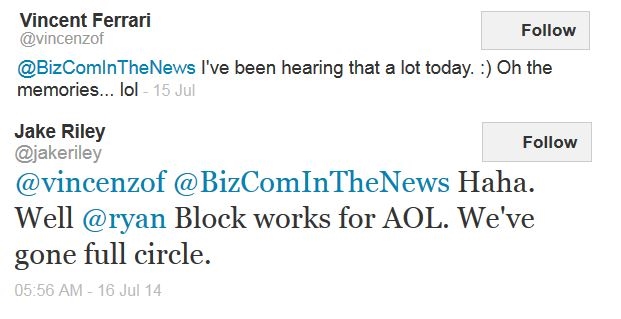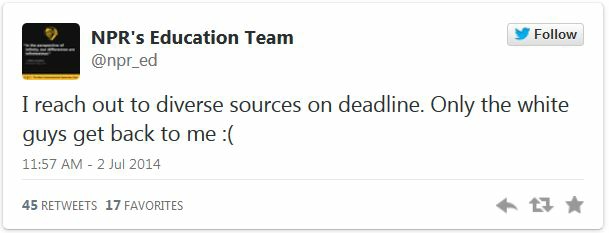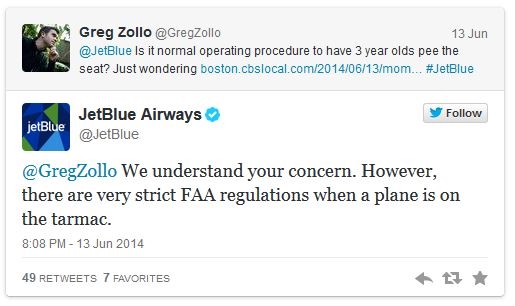Comcast Employee Gives Customer a Tough Time
When Ryan Block tried to cancel his Comcast account, it took him 18 minutes to convince an employee to let him. This audio starts 10 minutes into the conversation.
Slate writer Jordan Weissman helps us understand the situation:
"I can hardly imagine what horrible, punitive incentive structure Comcast has put in place for its employees that might inspire this sort of interaction."
An Awl writer tells us more about the pressure the employee may be under:
"If you understand this call as a desperate interaction between two people, rather than a business transaction between a customer and a company, the pain is mutual. The customer service rep is trapped in an impossible position, in which any cancellation, even one he can't control, will reflect poorly on his performance. By the time news of this lost customer reaches his supervisor, it will be data-it will be the wrong data, and it will likely be factored into a score, or a record, that is either directly or indirectly tied to his compensation or continued employment. It's bad, very bad, for this rep to record a cancellation with no reason, or with a reason the script should theoretically be able to answer (the initial reasons given for canceling were evidently judged, by the script, as invalid). There are only a few boxes he can tick to start with, and even fewer that let him off the hook as a salesman living at the foot of a towering org chart. The rep had no choice but to try his hardest, to not give up, to make it so irritating and seemingly impossible to leave that Block might just give up and stay. The only thing he didn't account for was the possibility the call would be recorded. Now he's an internet sensation. The rep always loses."
Comcast issued this apology:
"We are very embarrassed by the way our employee spoke with Mr. Block and are contacting him to personally apologize. The way in which our representative communicated with him is unacceptable and not consistent with how we train our customer service representatives. We are investigating this situation and will take quick action. While the overwhelming majority of our employees work very hard to do the right thing every day, we are using this very unfortunate experience to reinforce how important it is to always treat our customers with the utmost respect."
Management's instructions at Comcast are likely similar to those at AOL, which was criticized for a ridiculous call back in 2006. In that conversation, Vincent Ferrari did his best to cancel the account:
"Cancel the account. Cancel the account. Cancel the account. CANCEL THE ACCOUNT. CANCEL THE ACCOUNT. CANCEL THE ACCOUNT. FOR GOD'S SAKE JUST CANCEL THE ******* ACCOUNT."
For fun, I tweeted to Vincent Ferrari and received this reply-and some unconfirmed information about Ryan Block.
- Why would a Comcast employee behave in this way? What's the company's responsibility? How isolated do you think this situation is?
- Assess Comcast's statement. What's the approach, and is it successful?
- In the statement, Comcast promises to take "quick action." What do you think is appropriate in this case?
NPR Tweets DO Reflect on the Organization
A National Public Radio employee got her hand slapped after tweeting from @npr_ed (NPR's Education Team):
Anya Kamenetz apologized, saying that her tweets don't reflect on the public radio station. But NPR executives don't agree. In response, NPR Standards & Practices supervising editor sent this email to employees:
From: Mark Memmott
Sent: Tuesday, July 08, 2014 2:24 PM
To: News-All Staff
Subject: Reminder: There Is No Privacy On The Web, And ‘Personal' Pages Are Not Safe Zones
"If you wouldn't say it on the air, don't say it on the Web."
That's been the basic guidance for quite a few years.
In reality, Twitter and other social media sites allow us to show more of our personalities than we might on the air or in a blog post.
BUT, though the words may be on "personal" Twitter or Facebook accounts, what we say can reflect on NPR and raise questions about our ability to be objective.
Matt Thompson offers a test. Before posting something about your work or a news event or an issue, even if you're putting it on what you think of as a personal page, ask this question: "Is it helping my journalism, or is it hurting my journalism?"
Here's a bit more from the Ethics Handbook:
"We acknowledge that nothing on the Web is truly private. Even on purely recreational or cultural sites and even if what we're doing is personal and not identified as coming from someone at NPR, we understand that what we say and do could still reflect on NPR. So we do nothing that could undermine our credibility with the public, damage NPR's standing as an impartial source of news, or otherwise jeopardize NPR's reputation. In other words, we don't behave any differently than we would in any public setting or on an NPR broadcast."
Also, despite what many say, retweets should be viewed AS endorsements. Again, from the handbook:
"Tweet and retweet as if what you're saying or passing along is information that you would put on the air or in a ‘traditional' NPR.org news story. If it needs context, attribution, clarification or ‘knocking down,' provide it."
The email provides sound advice for people representing the organization, perhaps even when they're not representing the organization.
Discussion Starters:
- PR Daily asks readers good questions for business communication students: "Do tweets, even from personal accounts, reflect on employers? Do retweets equal endorsements?"
- @NPR is another Twitter handle, but there are no tweets about this incident. Should the account holder have written something? If so, what?
Nadella's Email to Microsoft Employees
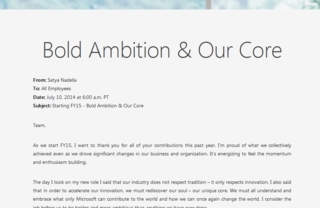 The beginning of a new fiscal year inspired Microsoft's new CEO Satya Nadella to send a 3,187-word email to employees about the company's future. (Thanks for counting, Business Insider!)
The beginning of a new fiscal year inspired Microsoft's new CEO Satya Nadella to send a 3,187-word email to employees about the company's future. (Thanks for counting, Business Insider!)
The email includes a mix of jargon and simple language. You'll see the typical verbs: reinvent, empower, deploy, maximize, thrive, and of course, digitize (What would Microsoft be otherwise?).
"Developers and partners will thrive by creatively extending Microsoft experiences for every individual and business on the planet." Whatever that means...
Discussion Starters:
- What key messages do you take from the email?
- The email is long. Do you think employees will read it? Why or why not?
- Who are the primary and secondary audiences? What are the objectives?
- What advice do you have for Nadella as a writer?
#WorldCup Twitter Records
Forget the games, the real World Cup action is on Twitter, where 580,000 tweets traveled per minute during Germany's fifth goal against Brazil. #BRAvGER was the most popular hashtag, and #WorldCup had been consistently trending.
The game also was the most highly tweeted in sports history, with 35.6 million tweets-significantly more than the Super Bowl's 24.9 million. A heat map shows Twitter traffic around the world during the game.
Twitter activity had its consequences. Rumors about riots in Brazil had some traction, and I wonder whether all of the negative posts hurt an already depressed nation. Here's a sampling:
- Russell Brand (@Rusty Rockets): "It's gone from might win the World Cup to maybe we should get other jobs. It's like watching an accident."
- Brick Tamland (@BrickCh4News): "Brazil, where'd you learn to play defense? At the toilet store?"
- Rob Burnett (@RobBurnett): "Yeah but they're *really* good at singing their anthem."
I tried to encourage more positive tweets and did get a response from the Ministry of Tourism.
Discussion Starters:
- What, if anything, is the significance of this news? How do numbers of tweets compare to, say, TV viewers?
- What is @VisitBrasil saying in its response tweet? What's your view of how the organization handled the #BeautifulBrazil tweet?
Another Case for Direct Bad-News Messages
 The 9th edition of the book challenges the traditional advice of presenting bad-news using the indirect organizational style. In an HRB blog post, "How to Start a Conversation You're Dreading," Peter Bregman offers examples of when beating around the bush doesn't work.
The 9th edition of the book challenges the traditional advice of presenting bad-news using the indirect organizational style. In an HRB blog post, "How to Start a Conversation You're Dreading," Peter Bregman offers examples of when beating around the bush doesn't work.
A performance issue with someone got out of hand because he delayed speaking with her about it. Then, the news took so long during a conversation that she had to break it herself. In another example, a CEO's long introduction to bad news was called a "complete waste of time."
We avoid giving bad news because we aren't good at it and because we're worried about the other person's reactions. But the other's reactions are likely worse when we aren't direct.
Jamie Dimon's letter about his cancer has the news right up front: "I wanted to let you know that I have just been diagnosed with throat cancer."
Discussion Starters:
- How do you feel about giving bad news? If you tend to delay it, why?
- Think about a time when you received bad news or negative feedback.
Google Intercepted a Goldman Email
A Goldman Sachs contractor accidentally sent a confidential email to a Gmail address instead of the "GS.com" domain. Unlike most of us who have mistyped an address (and who hasn't), the contractor, client, and company will suffer no humiliation.
Goldman asked Google to intercept the email. The appeal to Google was simply that it's an easy action for Google to take compared to the potential damage of the client's data being revealed. (I'm nosy: Who's the client, and just how much are we talking about?)
Google complied with the court order, and it's a happy ending, sort-of. Critics say Goldman's legal machine made this happen, and some wonder whether we could see a legal precedent, but this is unlikely because Google didn't fight the request, so there's no court decision to ponder.
Discussion Starters:
- Did Google do the right thing? What are the potential pros and cons of the company's decision to comply with Goldman's request?
- What are the potential implications of this situation?
#LikeAGirl Video Hits 18 Million Views
A Procter & Gamble Always video, with more than 18 million views in a few days, shows people asked to "act like a girl." Adults and a young boy dance and run with uncoordinated, sloppy moves, but young girls run like, well, normal people.
When asked, "What does it mean to you when I say, 'run like a girl'?" an (adorable) little girl says, "It means run fast as you can." Then the screen reads, "When did doing something 'like a girl' become an insult?"
The campaign encourages girls' confidence:
"Using #LikeAGirl as an insult is a hard knock against any adolescent girl. And since the rest of puberty's really no picnic either, it's easy to see what a huge impact it can have on a girl's self-confidence.
"We're kicking off an epic battle to make sure that girls everywhere keep their confidence throughout puberty and beyond, and making a start by showing them that doing it #LikeAGirl is an awesome thing."
AdAge reports that #LikeAGirl is the second most popular video this week, behind The Last Game, posted by Nike Football, with a remarkable 59 million views.
Discussion Starters:
- The campaign is clearly getting a lot of attention. Why do you think this video is so popular?
- How, if at all, do you think the viral video will translate into sales?
CEO Jamie Dimon Reveals Cancer
In a message to employees and shareholders, JPMorgan CEO Jamie Dimon revealed his throat cancer, explained the treatment plan, and described his "business-as-usual" approach.
Dear Colleagues and Shareholders -
I wanted to let you know that I have just been diagnosed with throat cancer.
The good news is that the prognosis from my doctors is excellent, the cancer
was caught quickly, and my condition is curable. Following thorough tests that
included a CAT scan, PET scan and a biopsy, the cancer is confined to the
original site and the adjacent lymph nodes on the right side of my neck.
Importantly, there is no evidence of cancer elsewhere in my body.
My evaluation and treatment plan are still being finalized, but at this time
it appears I will begin radiation and chemotherapy treatment shortly at
Memorial Sloan Kettering Hospital, which should take approximately eight
weeks. While the treatment will curtail my travel during this period, I have
been advised that I will be able to continue to be actively involved in our
business, and we will continue to run the company as normal. Our Board has
been fully briefed and is totally supportive.
As you all know, we have outstanding leaders across our businesses and
functions – the best team I've ever had the privilege of working with – so our
company will move forward together with confidence as we continue to deliver
first-class results for our customers, communities and shareholders.
I feel very good now and will let all of you know if my health situation
changes.
I appreciate your support and want to thank our employees for the amazing work
they do day-in and day-out. I'm very proud to be part of this company and
honored to be working with such an exceptional group of people.
Jamie
Dimon has been at JPMorgan for 10 years. Critics thought he should have been ousted after the bank lost more than $2 billion and then paid $20 billion in fines because of bad trades. But he had the support of his board to stay. In fact, they gave him a raise.
It's interesting to contrast Dimon's approach with Steve Jobs's. Jobs had pancreatic cancer while CEO of Apple and was quite private about his condition. One difference may be the prognosis. Although Jobs lived with pancreatic cancer for seven years (2003 - 2011), the prognosis typically is far worse, with a survival rates a mere 3%.
Posted on Business Wire, the notice is called a press release, a memo, a letter, and a note in various news articles.
Discussion Starters:
- Assess Dimon's message and approach. How do you find his openness? Transparent, TMI, or something else?
- In Chapter 8, we discuss how to organize bad-news messages. Dimon's message clearly follows the direct organizational plan. Is this the best choice? Why or why not?
- What direction do you think Dimon got from the board in composing the message? In other words, how, if at all, do you think they influenced Dimon's communication?
Social Media's Small Influence
Sixty-two percent of respondents in a Gallup poll said that social media had no influence over purchasing decisions. This sounds like bad news for companies who have spent tremendous time and money seeking followers on Twitter and likes on Facebook.
But that doesn't mean social media isn't important. Rather, as a Wall Street Journal article says, companies are shifting their strategies to cultivate relationships online more than simply attract people to a page.
Gallup's report found that "consumers are much more likely to turn to friends, family members, and experts when seeking advice about companies, brands, products, or services. Company-sponsored Facebook pages and Twitter." The report advises companies to consider social media as just one touchpoint with consumers, who could have their first interaction in a physical store:
"Therefore, if companies want to acquire new customers, their best bet is to engage their existing customers and inspire them to advocate on their behalf. Customer engagement drives social engagement - the degree to which consumers will work for or against an organization within their social networks - not the other way around."
Gallup suggests that companies spend less time posting content and more time engaging their current constituencies to advocate for the brand. This requires companies to be authentic, responsive, and compelling.
PR Daily also questions the poll's methodology:
"This Gallup Poll was conducted using telephone and mail surveys and gathered responses from 18,525 U.S. adults ages 18 and older, all of whom speak English."
Discussion Starters:
- In what ways does this report surprise you-or not?
- Look at your favorite company's Facebook page and Twitter feed. How well is the company using Gallup's suggested strategy? What changes would you recommend in its online interactions?
- Consider PR Daily's criticism of the survey. What's wrong with the approach?
Walmart Edits New York Times Article
Walmart couldn't let a critical piece in The New York Times go unanswered. In an op-ed article, "The Corporate Daddy," Timothy Egan contrasts Walmart and Starbucks:
"As long as the Supreme Court says that corporations are citizens, they may as well act like them. Starbucks is trying to be dutiful - in its own prickly, often self-righteous, spin-heavy way - while Walmart is a net drain on taxpayers, forcing employees into public assistance with its poverty-wage structure."
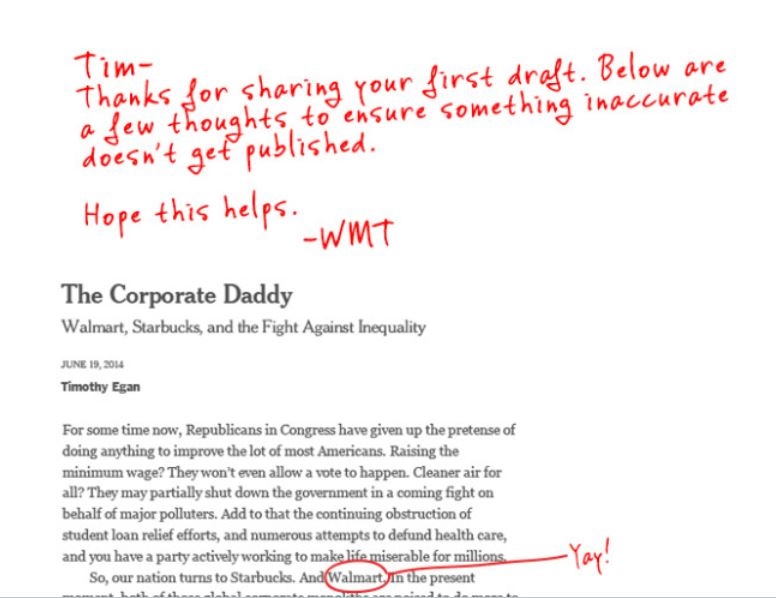 The impetus for the commentary seems to be Starbucks' recent announcement of tuition reimbursement for employees. Although Egan says, "It's a sad day when we have to look to corporations for education, health care, and basic ways to boost the middle class," he sees an opportunity for large employers-and criticizes Walmart for contributing in the wrong direction.
The impetus for the commentary seems to be Starbucks' recent announcement of tuition reimbursement for employees. Although Egan says, "It's a sad day when we have to look to corporations for education, health care, and basic ways to boost the middle class," he sees an opportunity for large employers-and criticizes Walmart for contributing in the wrong direction.
With tongue-in-cheek humor, Walmart posted an edited version of the article. The edits point to different sources and additional considerations for the value Walmart brings.
Discussion Starters:
- What's your view of Walmart's approach? Why do you think management took this approach? What alternatives would they have considered to refute the article?
- Assess evidence provided in the article and in Walmart's responses. In each case that Walmart disputes evidence, which argument do you find more believable?
Claim Against KFC Was a Hoax
Kelly Mullins wrote a sad story on Facebook about how her granddaughter, Victoria, was shunned at a Jackson, Mississippi KFC. The little girl was attacked by three pit bulls, which left her with scarring and a bandage on her face. The grandmother claimed that Victoria was asked to leave the KFC while eating: "We have to ask you to leave because her face is disrupting our customers."
As you can imagine, the response on Facebook and other social media sites was enormous, and news outlets were all over the story. KFC gave the family $30,000 for medical bills and issued this statement:
"KFC launched an investigation as soon as we were made aware of this report. We take this very seriously, as we have zero tolerance for any kind of hurtful or disrespectful actions toward our guests. Our investigation is ongoing, but we have been in touch with the family and are committed to doing something appropriate for this beautiful little girl and her family. We will also work with the franchisee to take appropriate action at the restaurant once the specifics of the incident are determined."
But the story didn't stack up. The family said they ordered mashed potatoes and iced tea, but there were no such orders that day, and the restaurant video showed no record of Victoria and her grandmother entering the building.
Discussion Starters:
- Let's put the grandparenting question aside because I don't want to judge(!). What about the responsibility of reporters? Huffington Post, CNN, and others reported the story with only the grandmother's evidence.
- Should KFC ask for the $30,000 back? Should the company press criminal charges?
- The family raised an additional $135,000 for the girl as a result of this publicity. Should they be forced to return the donations?
GM CEO Faces More Tough Questions
Appearing at the House committee hearing, GM CEO Mary Barra was prepared to answer questions following an internal investigation. Barra announced 15 terminations and additional disciplinary action based on the report findings and promised "no stone unturned." She also discussed creating a "new standard," a "new norm."
But Barra was challenged on how she'll change the culture considering her own 30-year tenure and the small number of people terminated. Emphasizing "the right environment," Barra said these terminations "send a message." Watch video.
Lawmakers also pulled emails from 2005 to prove the depth of the internal problem. One email was from an employee who owned an Impala:
"I think this is a serious safety problem, especially if this switch is on multiple programs. I'm thinking big recall."
It wasn't until just this past week that the Impala was recalled.
Although Barra was hopeful that the report would be a turning point in lawmakers' concern, committee members, such as Colorado ongresswoman Diana DeGette, were still skeptical:
"The report does not answer all the key questions. . . .The report singles out many individuals at G.M. who made poor decisions or failed to act, but it doesn't identify one individual in positions of high leadership who was responsible for these systemic failures."
In an interview, Barra sounded proud of the new culture they were creating at GM.
Discussion Starters:
- What's your view of Barra's approach at this point? Should she or can she do something differently?
- How well are the lawmaker's handling the line of questioning? What should be their approach at this point?
New Doctor's Commencement Speech
I've seen enough "had them in stitches" jokes about this speech, but it is quite funny. Bailey Sanders was chosen by her classmates at Penn State's College of Medicine to deliver this year's student commencement speech.
The success of Sanders' speech, in my opinion, rests on one factor: the writing. Poignant, colloquial at times, yet sprinkled with dramatic flourishes, the speech reads like a clever short story. The delivery and timing are nothing special, but Sanders is who she is-that's clear.
Regret is the theme of Sanders' speech, and she starts with her one regret, studying French:
Discussion Starters:
- What makes Sanders' speech funny to you-or not? Describe your reaction.
- In Chapter 11, we talk about humor in presentations as a risk. What risks should Sanders have considered in preparing her speech? On balance, the risks seem worth it. Why do you think this is the case, and how could it have turned out differently?
JetBlue Apologizes to Mother
 Three-year-olds aren't very good at "holding it." That's what JetBlue found out after refusing to allow a young girl to use the restroom, even though the plane was delayed on the turmac. After about a half-hour, the girl urinated in her seat.
Three-year-olds aren't very good at "holding it." That's what JetBlue found out after refusing to allow a young girl to use the restroom, even though the plane was delayed on the turmac. After about a half-hour, the girl urinated in her seat.
When the mother, Jennifer Devereaux, was trying to clean the seat, the flight attendant told her curtly to sit down. Eventually, the pilot turned around the plan and said they were going back to the gate because of a "non-compliant" passenger.
A JetBlue representative called Devereaux to apologize. She told CNN, "She said, 'I am a mom, too. I understand what you [are/were] going through, and I am so sorry this happened to you.'"
The airline also offered Devereaux a $500 voucher for a future fight and $5,000 to a charity of her choice. But she said, "I didn't care about a voucher. That kind of stuff doesn't matter to me. But I did want an apology for my family because we really felt we were mistreated and felt awful."
JetBlue replied to at least one comment on Twitter:
However, some question whether the FAA regulations speak directly about bathroom use.
On the other side, we have comments criticizing the mother for bringing a three-year-old on a plane without pull-ups.
Discussion Starters:
- The simple apology seemed to work for Devereaux, even more than the voucher and, particularly, THE charity donation, which she didn't mention at all. Did JetBlue waste its money? Should the company have offered something else?
- What, if any, responsibility did Devereaux have in this situation?
"Tee-Ups" and "Performatives"
An NPR episode described "tee-ups" and "performatives," phrases that sound polite but signal bad news. "With all due respect," "To be honest," "No offense, but," "I don't mean to be rude, but,"and "Let me be perfectly clear" may sound nice, but they are deceptive, according to experts.
A professor of psychology gave the example of "I just want you to know that," which could mean that what comes next is true or not. "We set up this lie, but in a weird way," he said.
The interviewer asked if these phrases could have a purpose, which is to couch difficult messages. Without them, she wondered if we would be left with just blunt phrases.
"I can't tell you how much I love you," for example, could be interpreted as "I don't even know whether I like you." You can't really evaluate what the person feels.
Asked whether cultural or geographic differences exist, one guest theorized that people in the corporate world use them quite often. Another thought that they are used across groups, but the phrases may differ (although the guests weren't aware of research to support their views).
When a caller asked whether we should just find a better way to express what we mean rather than use these phrases, which he considers passive-aggressive. But should we just say, "You need to lose weight" or "Your talk was lousy"?
Discussion Starters:
- Have you used these phrases? If so, for what purpose and in what circumstances?
- We could argue that these phrases just soften a bad-news message. What do you think?
GM Terminates 15 People
GM is cleaning house, hoping to rid itself of criticism about delaying recalls, which caused 13 deaths. CEO Mary Barra announced the decision after an internal investigation revealed that several executives knew about an ignition switch problem for years and avoided a fix that would have cost 57 cents.
In a message to employees, captured on video, Barra says she is guided by two principles: "doing the right thing for those who were harmed" and taking responsibility "to make sure this never happens again." She also blames the actions of "a few people," a strategic move to separate the company from a few bad apples who have since left.
Fifteen people were terminated and another five were disciplined, some for misconduct and others for not taking enough action. One email showed that several people were aware of the problem, which persisted for another nine years. A GM parts manufacturer wrote, Chevy "Cobalt is blowing up in their face in regards to turning the car off."
Discussion Starters:
- How do you assess GM's decision to terminate 15 people and discipline another five? Is this enough?
- What other persuasive strategies is Barra using in her presentation to employees? What key messages do you take from the video?
Walmart Apologizes for Truck's Role in Crash
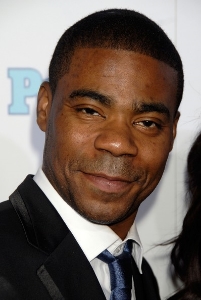 Actor Tracy Morgan is in critical condition after a limo accident involving a Walmart truck. Morgan is most famous for his TV roles in 30 Rock and Saturday Night Live.
Actor Tracy Morgan is in critical condition after a limo accident involving a Walmart truck. Morgan is most famous for his TV roles in 30 Rock and Saturday Night Live.
The crash caused one death (Morgan's mentor, James "Jimmy Mack" McNair) and two other critical injuries. The Walmart driver is facing criminal charges and is accused of driving after not sleeping for 24 hours. In a statement, Walmart President Bill Simon extended the company's concern:
Discussion Starters:
- It's still unclear what role the Walmart driver played in the crash. Is Walmart's apology premature?
- Assess the statement. Is it appropriate coming from the CEO? What changes, if any, would you suggest the company make?
Apologies for Racist Jokes, Homophobic Slur
Justin Bieber and Jonah Hill have more than their celebrity in common this week. Both have apologized for making offensive comments.
Two six-year-old videos of Bieber telling racist jokes surfaced, and he has apologized. TMZ published his statement:
Justin tells TMZ, "As a kid, I didn't understand the power of certain words and how they can hurt. I thought it was ok to repeat hurtful words and jokes, but didn't realize at the time that it wasn't funny and that in fact my actions were continuing the ignorance."
Justin goes on, "Thanks to friends and family I learned from my mistakes and grew up and apologized for those wrongs. Now that these mistakes from the past have become public I need to apologize again to all those I have offended."
Justin continues, "I'm very sorry. I take my friendships with people of all cultures very seriously and I apologize for offending or hurting anyone with my childish and inexcusable mistake. I was a kid then and I am a man now who knows my responsibility to the world and to not make that mistake again."
And Justin says, "Ignorance has no place in our society and I hope the sharing of my faults can prevent others from making the same mistake in the future. I thought long and hard about what I wanted to say but telling the truth is always what's right."
Justin ends with this: "Five years ago I made a reckless and immature mistake and I'm grateful to those close to me who helped me learn those lessons as a young man. Once again....I'm sorry."
But an LA Times article called this apology and another that quoted scripture "unacceptable." The videos are disturbing: in one he asks, "Why are black people afraid of chainsaws?" and then imitates the sound of a chainsaw and repeats "n..." several times.
Another apology this week came from Jonah Hill. In this (albeit very different) situation, Hill yelled a homophobic slur to a paparazzo. We see his apology here on the Jimmy Fallon show:
Discussion Starters:
- What's your assessment of Beiber's comments and apology? Do you agree with the LA Times article that his apology was insufficient? Should he have done something different?
- How do you interpret Hill's remark, given his vocal support of LGBTQ equality? What's your assessment of his apology?
American Girl Discontinues Only Asian Doll and One of Two Black Dolls
 As the United States becomes more diverse, American Girl dolls become less so. The company has updated its line to exclude Ivy, its only Asian doll, and Cecile, one of its two Black dolls.
As the United States becomes more diverse, American Girl dolls become less so. The company has updated its line to exclude Ivy, its only Asian doll, and Cecile, one of its two Black dolls.
Customer backlash was intense. On the American Girl Facebook page, one critic wrote, "Seriously AG… You are getting rid of the ONLY Asian girl in your historical line-up. It was disappointing enough that she was only a 'side-kick' doll to Julie, but she was better than nothing….. which is what we have now. How can the historical line represent American if there are no Asians?"
The company says it is moving away from dolls sold in pairs to focus on dolls sold individually. The four shown here are part of the historical line.
American Girl issued a statement, which ABC News posted, in part:
"At nearly one million strong, we're proud of the relationships we've built with our dedicated Facebook community. Our fans are very passionate and many of our posts generate a high level of engagement, including comments, likes and shares. Certainly we know that whenever we announce that a character is archiving, it will cause some level of disappointment, especially among our most ardent fans… While demand for characters certainly plays a part in our overall decision making, the main reason for this year's approach is based on the decision to move away from our friend-character strategy within the historical line. This decision affected Marie-Grace, Ruthie, as well as Ivy and Cecile-the first two racially diverse characters to be archived by American Girl. In comparison, American Girl will be archiving a total of nine Caucasian characters since 2008."
Discussion Starters:
- Should American Girl have anticipated the backlash? Should that have changed the company's decision to "archive" these characters?
- How do you assess the American Girl statement? What works well, and what could be improved?
NRA's Statement Asks Gun Activists to Consider Consequences of Their Behavior
 In a statement that surprised some, the National Rifle Association asked gun owners "to consider the effect their behavior has on others, whether fellow gun owners or not." The statement, "Good Citizens and Good Neighbors: The Gun Owners' Role," implies that some gun advocates have gone too far:
In a statement that surprised some, the National Rifle Association asked gun owners "to consider the effect their behavior has on others, whether fellow gun owners or not." The statement, "Good Citizens and Good Neighbors: The Gun Owners' Role," implies that some gun advocates have gone too far:
"In summary, NRA certainly does not support bans on personalized guns or on carrying firearms in public, including in restaurants. We think people are intelligent enough to resolve these issues in a reasonable way for themselves. But when people act without thinking, or without consideration for others – especially when it comes to firearms – they set the stage for further restrictions on our rights. Firearm owners face enough challenges these days; we don't need to be victims of friendly fire."
The NRA statement gave two examples of when "poor judgement" may run counter to NRA goals. The first is supporting "smart" guns that can be fired only by an authorized user, a technology the NRA says has "darker implications."
The second example is openly carrying long guns in public places, particularly in Texas. Although the statement applauds the state's "robust gun culture" and acknowledges that carrying is legal, the NRA criticizes the "attention-hungry few"-"a small number have recently crossed the line from enthusiasm to downright foolishness."
In a Facebook response, Open Carry Texas explained its position:
"Open Carry Texas members have always sought permission to enter an establishment prior to going in with our firearms. This has been part of our philosophy since day one and it has worked, with hundreds of businesses across the state 100% in support of what we do and how we do it."
Read the full Open Carry Texas statement.
Discussion Starters:
- Assess persuasive strategies used in the NRA statement. How does the NRA use logical argument, emotional appeal, and credibility to make its case?
- What are the strongest and weakest arguments in the statement?
- Is the apostrophe in the NRA statement title correct: "Good Citizens and Good Neighbors: The Gun Owners' Role"?


